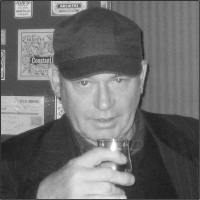Procol Harum
// Chris Copping, bassist & organistPROCOL HARUM are a progressive rock band from London, England. “Procol Harum (Self-Titled)” (1967) was available from Regal Zonophone Records and Deram Records, “Shine On Brightly” (1968), “A Salty Dog” (1969), “Home” (1970) were all available from Regal Zonophone Records and A&M Records, “Broken Barricades” (1971), and “Procol Harum Live With The Edmonton Symphony Orchestra [Live]” (1972) were both available from Chrysalis Records and A&M Records, “Grand Hotel” (1973), “Exotic Birds And Fruit” (1974), “Procol’s Ninth” (1975), and “Something Magic” (1977) were all available from Chrysalis Records, “The Prodigal Stranger” (1991) was available from Zoo Entertainment, “The Long Goodbye” (1996) was available from RCA Records, “The Well’s On Fire” (2003) is available from Eagle Records, “Secrets Of The Hive: The Best Of Procol Harum [2CD]” (2007) is available from Salvo Records, and “One Eye To The Future: Recorded Live In Italy 2007 [Live]” (2008) is available from Strongman Productions. Chris Copping was bassist and organist in Procol Harum, recording seven albums with the group and touring extensively between 1969 and 1977. He is an accomplished musician and singer-songwriter who has also composed music for film and television.
Websites: www.procolharum.com and www.chriscopping.com
Photo: Chris Copping / ChrisCopping.com
Interview:
The spiritual significance of music is basically the spiritual significance of any art form. It is the reflective power of the artist rather than the subject of what they are portraying. So a painting by Monet of an insignificant subject such as a hay bale, or even a half empty dinner plate, has more significance than a painting of the Grand Canyon by an amateur or student painter. In this way, the art process leads to eternity: a state where time ceases to exist. The arts succeed where religion often fails. The social organization of a religion tends to override the object of their being there in the first place. Whereas the artistic process is a direct communication from the inner soul, the very essence of ourselves that is beyond body, mind, or time. As a Rock musician, I feel I am on the sidelines, but I have to conclude that listening to Bach’s “Jesu, Joy Of Man’s Desiring” there could be no better proof of a higher being beyond this mortal coil. And if you don’t like Bach, try reading Marcel Proust.
“The artistic process is a direct communication from the inner soul, the very essence of ourselves that is beyond body, mind, or time.”
– Chris Copping, bassist and organist in Procol Harum


